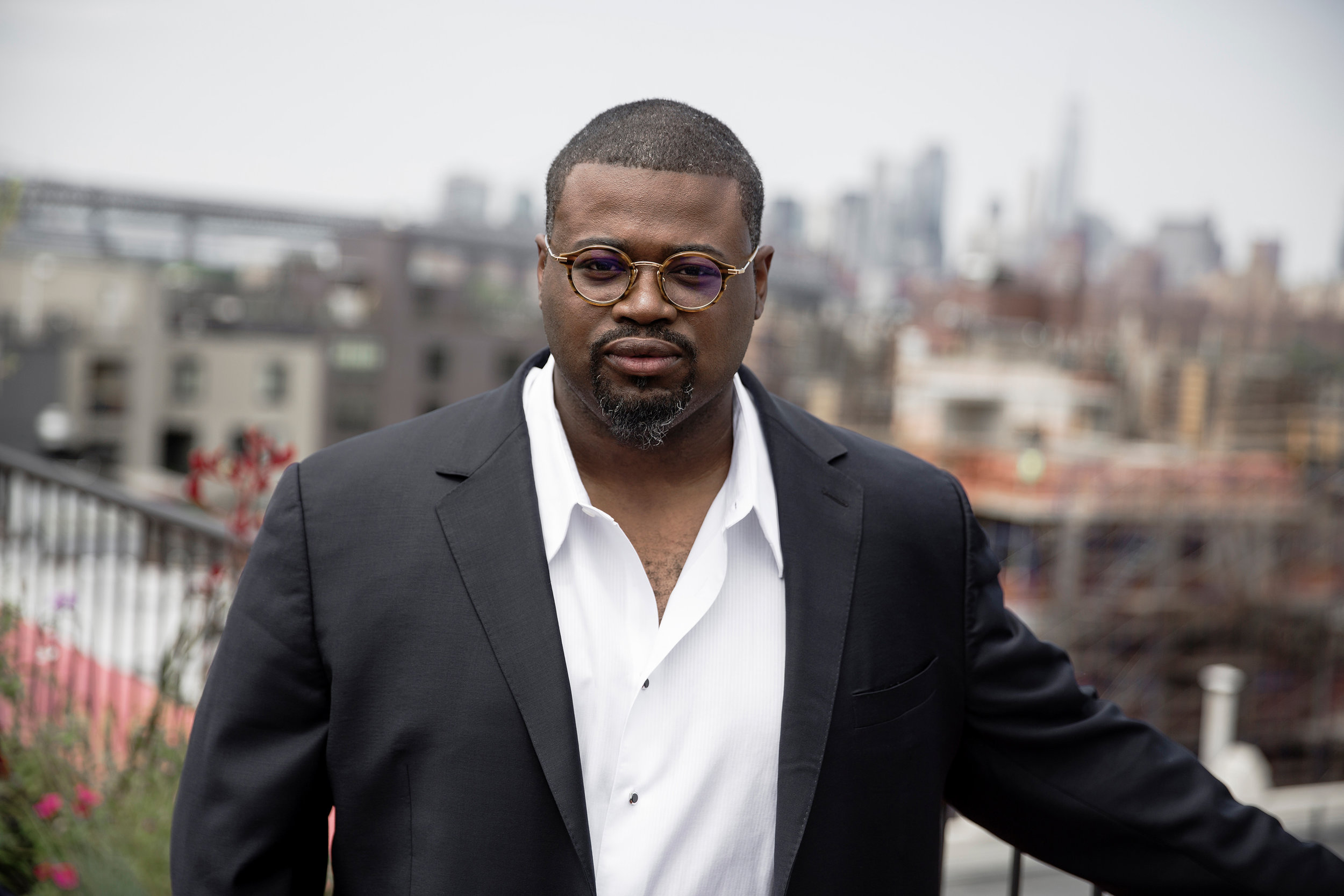Salzburg Festival Magazine
November 2018
Mozart to the point of self-expropriation
The tenor Russell Thomas, an acclaimed Emperor Titus in 2017, returns to Salzburg as Mozart’s Idomeneo. His artistic partners in this new production are once again Peter Sellars and Teodor Currentzis.
The newspaper Die Welt enthused about a “dream opening” in July 2017. The newly-installed Artistic Director Markus Hinterhäuser had entrusted the festival’s opening premiere to the music theatre phenomenon Peter Sellars and the classical innovator Teodor Currentzis: Mozart’s La clemenza di Tito. The result was a high-profile and intensely disputed success. When Mozart’s Idomeneo appears in the repertoire this coming summer, his first enduringly successful opera with which he left conventional opera seria behind him, one may look forward again to music theatre with its finger on the pulse of our time.
Sellars and Currentzis will return as the leading team. Their Idomeneo will be Russell Thomas. The Miami-born tenor was their Tito in 2017, making his Salzburg debut in the role. The newspaper Der Standard hailed “an intensity that borders on self-expropriation" and described his singing as “imposing –– even in the vast spaces of the bare Felsenreitschule.” The fact that his tenor voice can clearly go beyond Mozart is evident from the variety of his recent engagements. Russell Thomas was recently Manrico in Verdi’s Il trovatore in Munich, he sang Otello in a concert performance in Los Angeles and will be seen in this heroic Verdi role next year at the Deutsche Oper in Berlin. His repertoire also includes roles such as Pollione in Bellini’s Norma, Verdi’s Don Carlo, Puccini’s Rodolfo in La bohème and Cavaradossi in Tosca as well as Florestan in Fidelio. Meanwhile he regularly returns to Titus, because Russell Thomas loves Mozart, and finds singing Mozart, especially after dramatic roles, “like a massage for my voice” where he can “tune down” his vocal cords a little.
He does not find it difficult to switch to Mozart: “My Mozart parts are the ones from his serious operas because they tend to be more heroic than the ones in his comic operas. I would like to do more Mozart, such as Mitridate, which I have already studied and suits me very well.” Lucio Silla is also on his wish list. And of course Idomeneo, which he set his sights on at a very early stage, fits perfectly in this series. Thomas joined the studio of the Metropolitan Opera in New York in 2003. He auditioned for the Met’s then Artistic Director, James Levine, who immediately recommended that he sing more Mozart and to leave Puccini alone for the time being. Russell trusted Levine and studied both Tamino and Idomeneo with him.
Thomas had started singing in the choir at his grandmother’s church when he was a child. He discovered classical music by accident. When he was eight years old he came home from school, turned the radio on and found himself listening to an opera station where “the singing was loud and strange. But I was fascinated by it and I started listening to this station every day after school,” Thomas recalls. With the Miami Children’s Choral he then performed in La bohème and Carmen and while he was at high school he was able to witness opera greats such as Ghena Dimitrova, Luciano Pavarotti, Simon Estes and James Morris in dress rehearsals. Eventually he won a scholarship to attend the conservatory and later to study at the Met Studio. It is important to Russell Thomas to interpret music theatre in a contemporary manner. This fascinates, challenges and inspires him.
Peter Sellars has played a significant role in his career from the beginning, as the singer recalls: “When I’d just arrived in New York, I auditioned for Peter and he immediately hired me for two projects. And he introduced me to Louis Langrée and John Adams. That was really the beginning of my career. Peter Sellars is very musical, something you don’t always find with directors these days. He understands how music can be used to find an interpretation. He knows that opera has to tell stories that are relevant if it is going to be perceived as something alive, as a breathing art form. I’ve done some of my best work with Peter.”
–Stefan Musil

